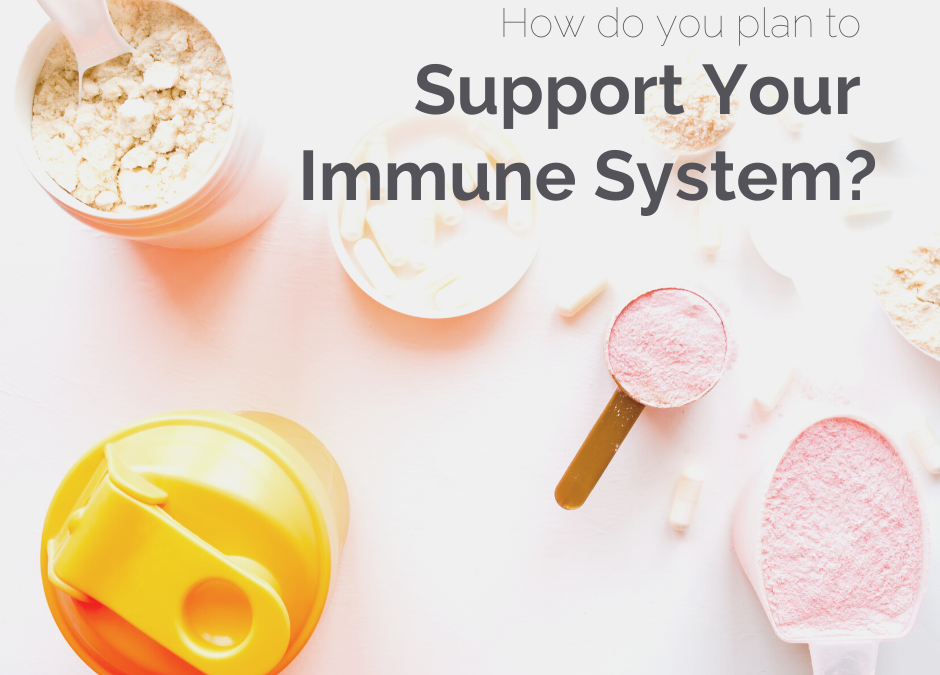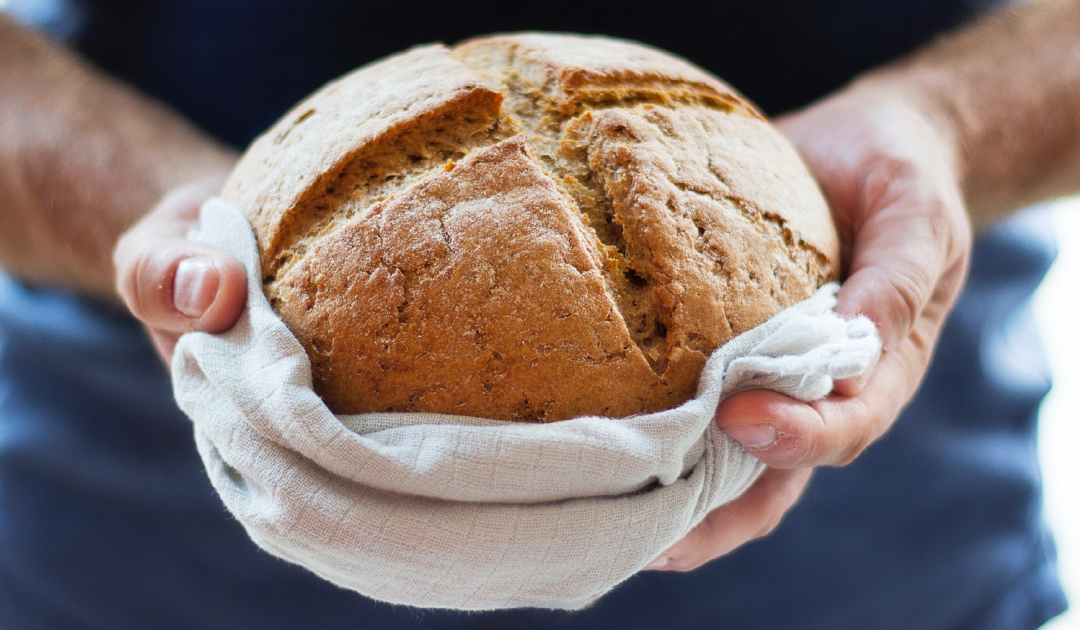Should you go gluten-free?
The Goods on Gluten-Free – Should You Try It?
One of the most talked about nutrition topics of the past couple of years has been whether or not gluten should have a place – or be forbidden – in our diets. Until recently, even the word ‘gluten’ would have been used almost exclusively in culinary, confectionary and severe allergy professions alone. But, due to the recent increase in understanding about gluten, its properties, and health effects, the idea of going gluten-free has gained major popularity and as an understandable result, has left many people wondering whether or not gluten-free is the way to go in their own lives. If you’ve been curious about gluten, even if you’ve already experimented with gluten-free living, it’s important to have a good understanding of the basics around the topic, so you can make informed decisions about the nutrition you and your family access.
What is gluten anyway?
Gluten is the name of a family of proteins found in wheat and wheat related grains such as barley and rye. Gluten itself is what enables foods made of ingredients to hold their shape. They act almost like ‘glue’ to give foods texture and hold it together. It can be found in many foods, even where you might not expect it.
There are three big categories of grains that are known as ‘glutinous grains.’ These include:
1. Wheat (including wheat berries, durum, emmer, semolina, spelt, farina, farro, graham, kamut, and einkorn)
2. Barley
3. Rye
Things like breads and crackers, pastries, pastas, cereals, beer, soups and sauces (which could contain grains or flours as thickeners), brewer’s yeast, and food colouring are some foods and beverages that contain these grains and therefore naturally contain gluten. But, sometimes, gluten itself is also used in other foods to act as a binding agent to give texture and hold to other ingredients.
Are most people allergic to gluten?
You may have heard that most people cannot tolerate gluten, or that grains today are different than the grains our ancestors used to eat. However, many studies have shown that in fact, grains and gluten are well-tolerated by the majority of people. That being said, there are three key groups of people who greatly benefit from removing gluten from their diets.
1. Celiac Disease Sufferers
Celiac disease, suffered by 1% of people, is a condition of the immune system in which eating gluten triggers an intestine-damaging response. Symptoms of celiac disease are serious and uncomfortable and include abdominal pain, skin rashes, headaches, diarrhea, vomiting, and even unexplained weight loss. In cases of celiac disease, it’s imperative for the individual to remove all sources of gluten from their diets as well as from any personal care items they use, since some of the unlikely sources of gluten can include lipsticks and balms, body and handy creams and cosmetics which could introduce trace amounts of gluten that would trigger a reaction. Often, celiac sufferers may not improve by gluten elimination alone and require a healing treatment to their damaged intestinal lining, not to mention supporting their immune system; contact us to develop a plan to help you there…
2. Non-Celiac Gluten Sensitivity
While celiac disease is rare, the percent of people who suffer from non-celiac gluten sensitivity (NCGS) is unknown and triggers similar symptoms. Unfortunately, because validated biomarkers or tests have not yet been developed, accurate diagnosis of this condition is still challenging. That said, it’s still important for this group of people to remove gluten from their diets to ensure they are not taxing their immune systems unnecessarily. One test that can be helpful to identify those in this group, is a ‘zonulin antibody’ blood test which we can arrange at our clinic.
3. Those with Other Gut and Auto-immune Disorders There’s still a third group of people who also benefit from removing gluten – those who suffer from other gut-related illnesses such as IBS (irritable bowel syndrome), Crohn’s disease, ulcerative colitis as well as a hot of auto-immune disorders such as lupus and vitiligo, etc.
What do I need to know to go gluten-free?
Whole grains do contain a number of important nutrients, such as fiber, iron, calcium, magnesium, zinc, folate, niacin, riboflavin, vitamin B12 and protein. So when deciding to remove gluten-containing whole grains from your diet, be sure create a robust diet that can replace these and/or take supplements to add to your security. Know too, that many gluten-free substitutes like cookies, brownies and breads usually contain higher levels of fats, sugar and salt than their conventional counterparts. If you crave the comfort of baked goods or cereals, we recommend creating your own gluten-free versions at home for the healthiest alternative from whole-foods based ingredients (not processed replacement gluten-free flours).
Going gluten-free will take time, patience and practice – we know, because we’ve helped dozens of families do it with success! Sometimes you don’t even realize how much gluten is affecting your system until you eliminate it. Check our Facebook page where we feature monthly gluten free recipes and you’ll find a few tried and true favourites to get you going. If you suffer from symptoms such as constant stomach pain, headaches, bowel issues or other symptoms that could be related to gluten sensitivity, please book an appointment so we can properly test you for celiac disease and non-celiac gluten sensitivity. We want to make sure you’re living your healthiest life possible! If not, but you’d still like to explore the health benefits of removing gluten, we’d love to help you make a plan to get your health back on track by managing your gut health.
To your good health, Dr. Habib ND Naturopathic Doctor
Ticks and Lyme disease: What you need to know
Ticks and Lyme Disease: What you need to know! The warmer weather encourages everyone to get outside and enjoy the sun on their face but there is one creature who is waiting in the wings to greet us and our pets...the tick. Few pests inspire the level of paranoia and...

Adapting your Body to Stressful Times
Adapting Your Body to Stressful Times If you’re like most people, you’ve read a lot of tips on avoiding COVID-19. You likely know the basics: wash your hands; keep a safe distance from others; avoid travel and quarantine yourself if you have traveled; and don’t go out...

How to Support Your Immune System and Navigate COVID-19
How To Support Your Immune System And Navigate COVID-19 With many of our clients glued to the news of the spread of the novel coronavirus, we want to address the questions we’re receiving daily. Preventing illness altogether may be out of our control, however...

Hashimoto’s Autoimmune Thyroid
Hashimoto’s Thyroiditis: Treating This Autoimmune Disorder With Naturopathic Medicine A diagnosis of Hypothyroidism, or underactive thyroid, means that your thyroid gland is not producing high enough hormone levels to carry out its many roles in the body. Thyroid...
New year, new you: tips for success
New year, new you: top tips for success Here’s a quick list of simple, proven tips that can help you reach your goals towards better health and happiness in 2020. Of course, when you’re making changes like these, it’s important to start off with realistic...
Conquer Holiday Stress and Put the Joy Back into the Holidays
Conquer Stress and Put the Joy Back in the Holidays December brings festive parties, fun times with family, favourite traditions… and stress. How much stress? According to a Healthline survey, the combination of joy and pressure that makes up the month of December...
Signs that your body is out of balance
Signs That Your Body Is Out of Balance Are you feeling burnt out and overwhelmed? You’re not alone. Let’s face it: we’re all busy, dealing with endless to-do lists and struggling to balance it all. The result is often a day-to-day life that feels too hectic. We feel...
How to have a better sex life
How to Have a Better Sex Life Let’s talk about sex. Is your sex life not what you thought it would be? Does the thought alone make you tired? Many people find their interest in sexual intercourse naturally drops with age. And the stress and strain of daily life is...
B-vitamins: why do you need them
B vitamins: why do you need them B vitamins are sometimes called the 'energy' vitamins, since they help put a spring in your step and play an important role in maintaining your energy levels. (In fact, they play such a key role that perhaps they should also be called...
Healthy holiday tips
Best ways to Stay Healthy and Happy Over the Holidays Are you enjoying the final stretch of 2018? It’s a fantastic and fun time of the year. Unfortunately, it’s also a difficult period for maintaining healthy habits. Check out our list of the top ways to stay healthy...



